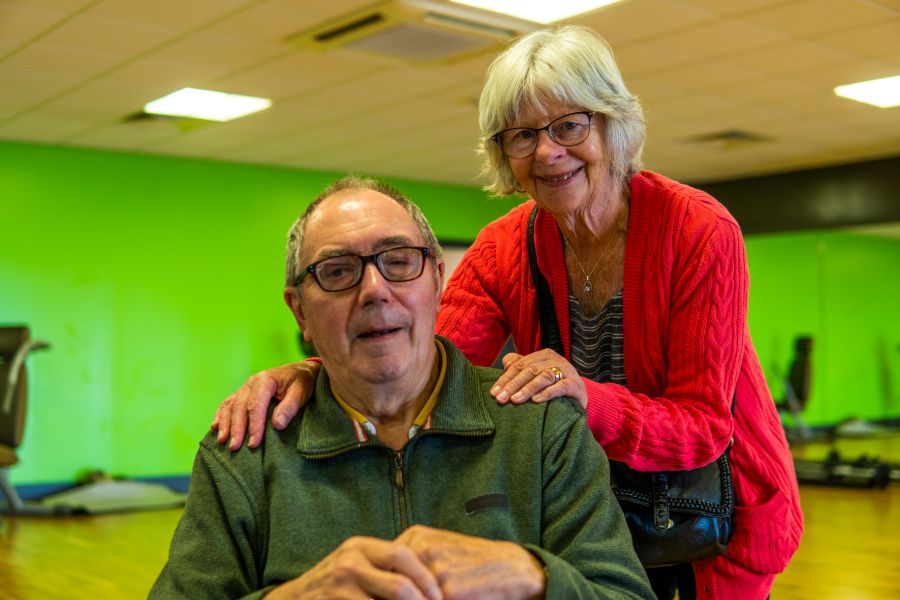April 11 was World Parkinson’s Day, a time to raise awareness about Parkinson’s disease and the unique challenges individuals with this condition face. Parkinson’s is a progressive neurological disorder that affects movement, balance, and coordination. As the disease advances, many individuals require long-term care in a nursing home or assisted living facility. However, not all care settings are equipped to handle the complex needs of Parkinson’s residents. Many families struggle with finding a nursing home for a loved one with Parkinson’s.
The Challenges of Finding the Right Nursing Home for Parkinson’s Patients
People with Parkinson’s disease (PD) often face distinct challenges in long-term care facilities, including:
- Mobility Issues – PD can cause tremors, muscle rigidity, and difficulty walking, increasing the risk of falls.
- Medication Management – Parkinson’s medications must be given on a strict schedule to be effective, but some facilities struggle with this level of precision.
- Speech and Swallowing Difficulties- Many individuals with PD develop speech impairments or difficulty swallowing, which require specialized care and dietary adjustments.
- Cognitive Changes – While not all people with Parkinson’s develop dementia, some may experience cognitive decline, requiring additional supervision and care.
- Emotional and Mental Health Support – Depression and anxiety are common in people with PD, making emotional support and mental health resources essential.
What to Look for in a Nursing Home for a Loved One with Parkinson’s
If you are searching for a nursing home for a loved one with Parkinson’s, consider the following:
1. Specialized Staff Training
Does the facility have experience caring for individuals with Parkinson’s? Are staff members trained in handling mobility challenges, medication timing, and speech or swallowing difficulties? Ask if you can meet other residents who have some of the same needs as your loved one to hear their experiences.
2. Consistent Medication Administration
Timely medication management is crucial for Parkinson’s patients. Ask how the facility ensures medications are administered on schedule and whether they are flexible with meal times and schedules to accommodate medication needs. Research how many hours of care per day, on average, residents get at each facility and talk to the CNAs you meet about their workload.
3. Physical Therapy and Mobility Support
Look for a facility offering physical therapy and exercise programs to improve strength and balance. Specialized Parkinson’s therapy, such as LSVT BIG and LOUD programs, can make a significant difference in maintaining mobility and communication skills. If the facility does not have these, will they allow you to bring someone in?
4. Fall Prevention Measures
Since falls are a major concern for Parkinson’s patients, ask about fall prevention protocols, adaptive equipment, and whether the facility has a safe environment for movement. As you tour a facility, look for fall risks and handrails.
5. Speech and Swallowing Support
A facility with speech therapists who specialize in Parkinson’s-related swallowing and communication difficulties can greatly enhance quality of life. Ask how often they come in and what your loved one is eligible for.
6. Cognitive and Emotional Care
If your loved one is experiencing cognitive changes or emotional struggles, a facility with memory care services or psychological support may be beneficial. Ask about staff training in these areas, how often staff receive training in how to care for residents with these issues, and what levels of staff receive that training. Since almost everyone from the Administrator to the kitchen staff will work with your loved one occasionally, all staff must understand how best to talk to and work with people with cognitive decline.
7. Resident-Centered Care
Every person with Parkinson’s experiences the disease differently. The best nursing homes provide individualized care plans that address each resident’s unique symptoms, preferences, and goals. Resident-centered care starts with staff getting to know your loved one. If you have brought your loved one on a tour, watch to see if the staff you meet are talking to your loved one and not just you as a decision maker.
Advocating for Your Loved One
Even after choosing a nursing home, advocacy remains important. Family members should stay involved in care planning, attend meetings with staff, and ensure their loved one’s needs are being met. VOYCE’s ombudsman program can help families navigate concerns and advocate for quality care in long-term care settings.
Help Finding a Nursing Home for a Loved One with Parkinson’s
On World Parkinson’s Day, we recognize the resilience of those living with Parkinson’s and the importance of quality long-term care. By increasing awareness and advocating for specialized nursing home care, we can improve the lives of individuals with Parkinson’s and ensure they receive the support they deserve.
If you or a loved one needs assistance finding the right nursing home or advocating for better care, VOYCE is here to help. Contact the VOYCEconnect program for guidance and support in navigating long-term care options.

